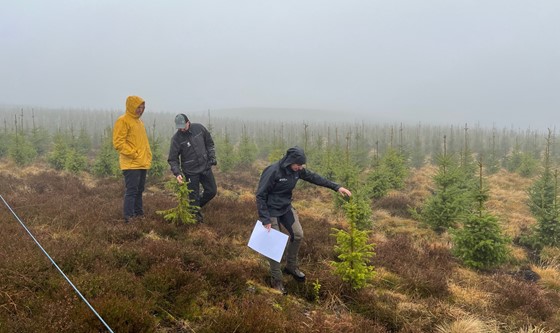International forestry leaders see wide benefits of planting trees in Scotland
16 February 2024
A group of senior executives from some of the world’s largest forestry and forest products businesses visited two large woodland creation sites in central Scotland to gain insights into the Scottish approach to delivering wide-ranging benefits through planting trees.
The visit to Knowes & Keltie, near Dunning, Perthshire and Jerah, between Dunblane and Menstrie, was attended by global forest sector leaders from Japan, Australia, New Zealand, the United States, Finland and Sweden.
They all represent companies which are members of the International Sustainable Forestry Coalition (ISFC), open to "all global forestry owners, managers and investors who subscribe to the highest environmental, social and governance standards". The aim of the Coalition is to promote sustainable forest management and help world leaders understand the role sustainable forestry and products from such forests must play in supporting positive outcomes for climate change, nature and social justice - as well as the shift to a circular bio-economy.
The ISFC played a role in an announcement at COP28 in Dubai last December supporting the need to substantially increase the use of timber in construction, and the need to connect this ambition to increasing the supply of sustainably-sourced timber and fibre.
The announcement was made at a COP Presidency event under the auspices of the Forests and Climate Leaders Partnership (FCLP), co-chaired by the then United States Special Presidential Climate Envoy, John Kerry, and the Minister of Lands and Natural Resources for Ghana, Samuel Jinapor.
A coalition of 17 countries - including the UK - committed to “advancing policies and approaches that support low carbon construction and increase the use of wood from sustainably managed forests in the built environment” by 2030.
Ross Hampton, Executive Director of the ISFC, said: "Scotland is a fascinating example of tree planting within a framework of high levels of regulation, wide stakeholder consultation and competing drivers for land-use. At Jerah and Knowes & Keltie we saw modern and multi-species forests planted for a wide range of reasons - environmental, economic and social, and learnt how local communities are engaged in the forest planning process."
